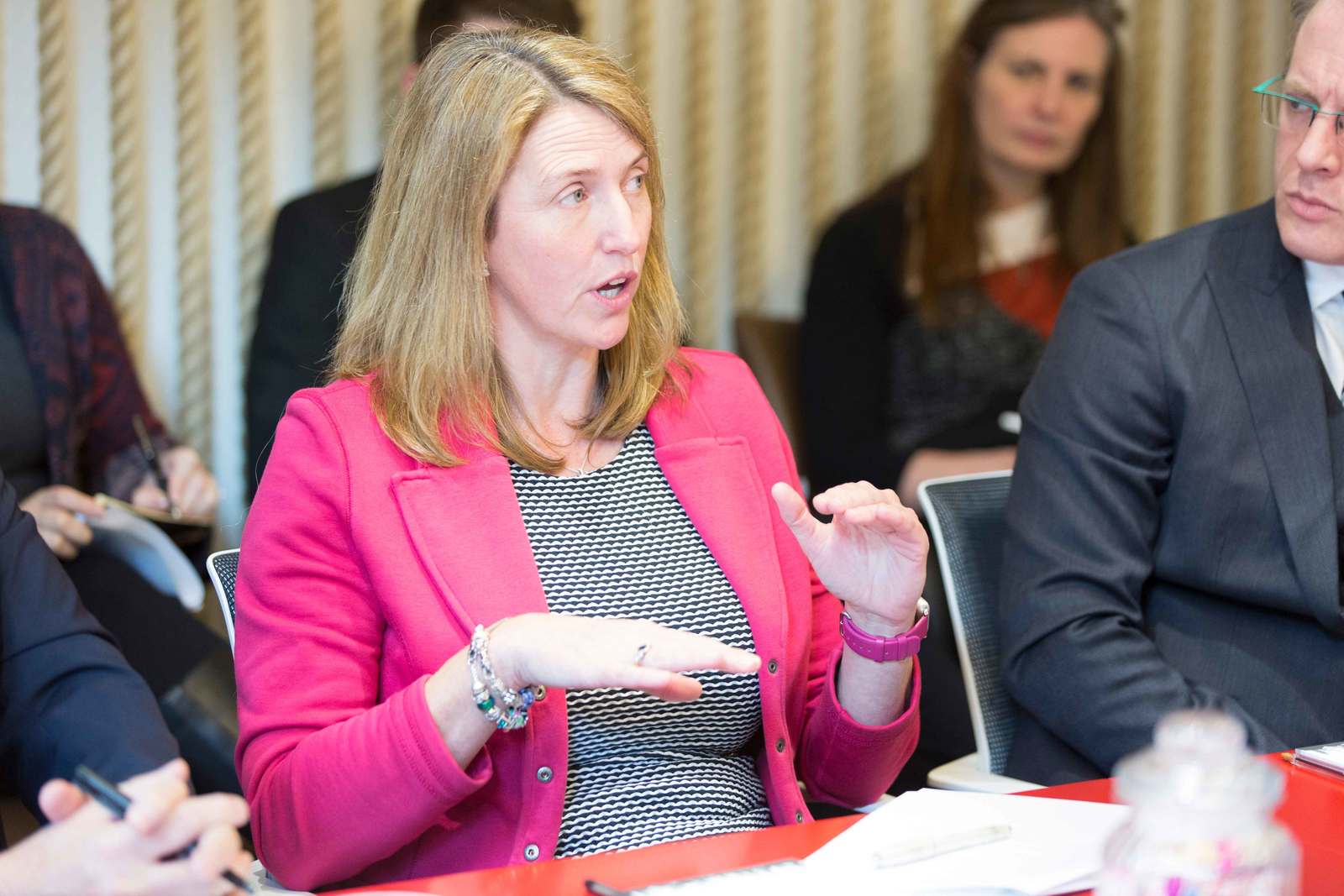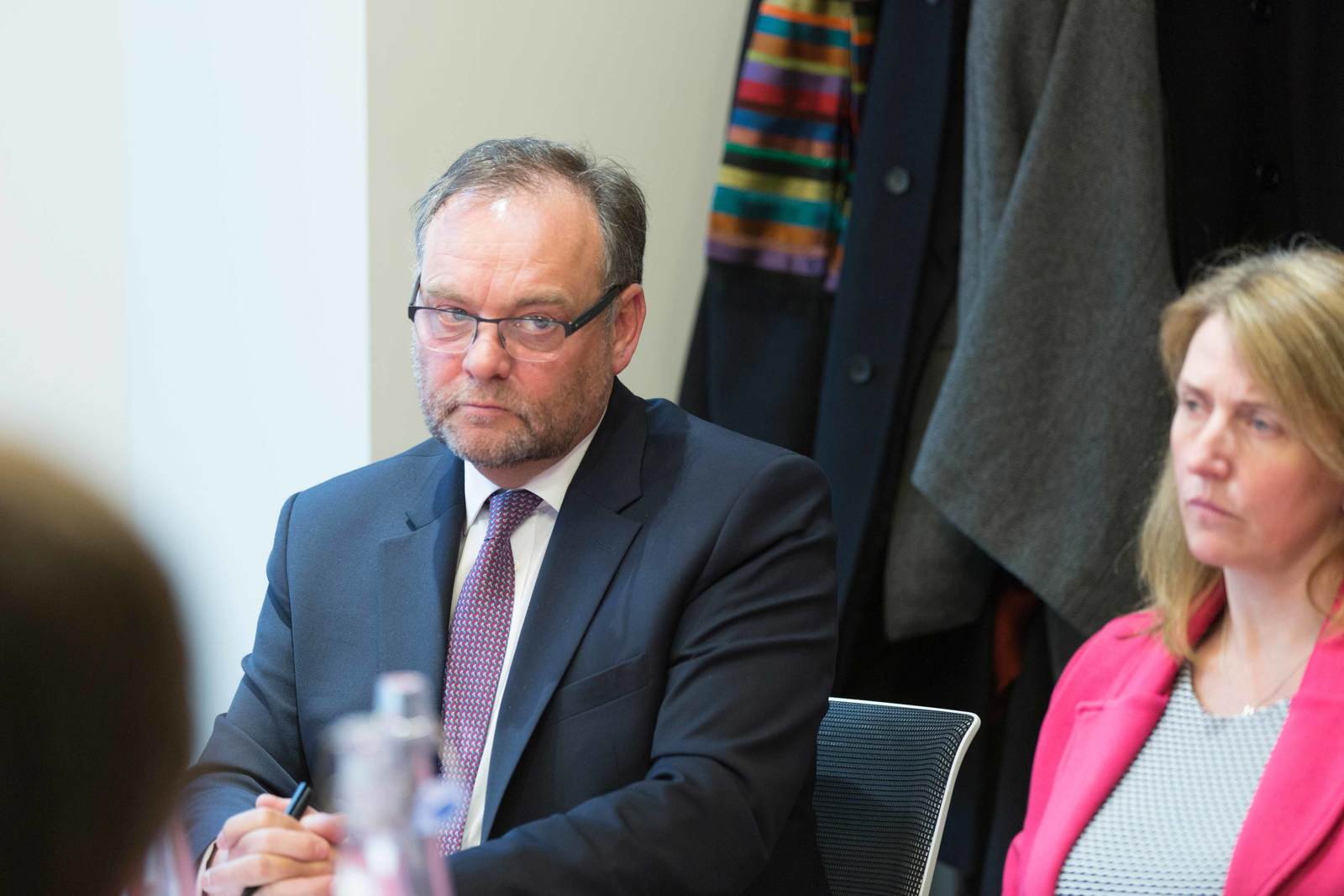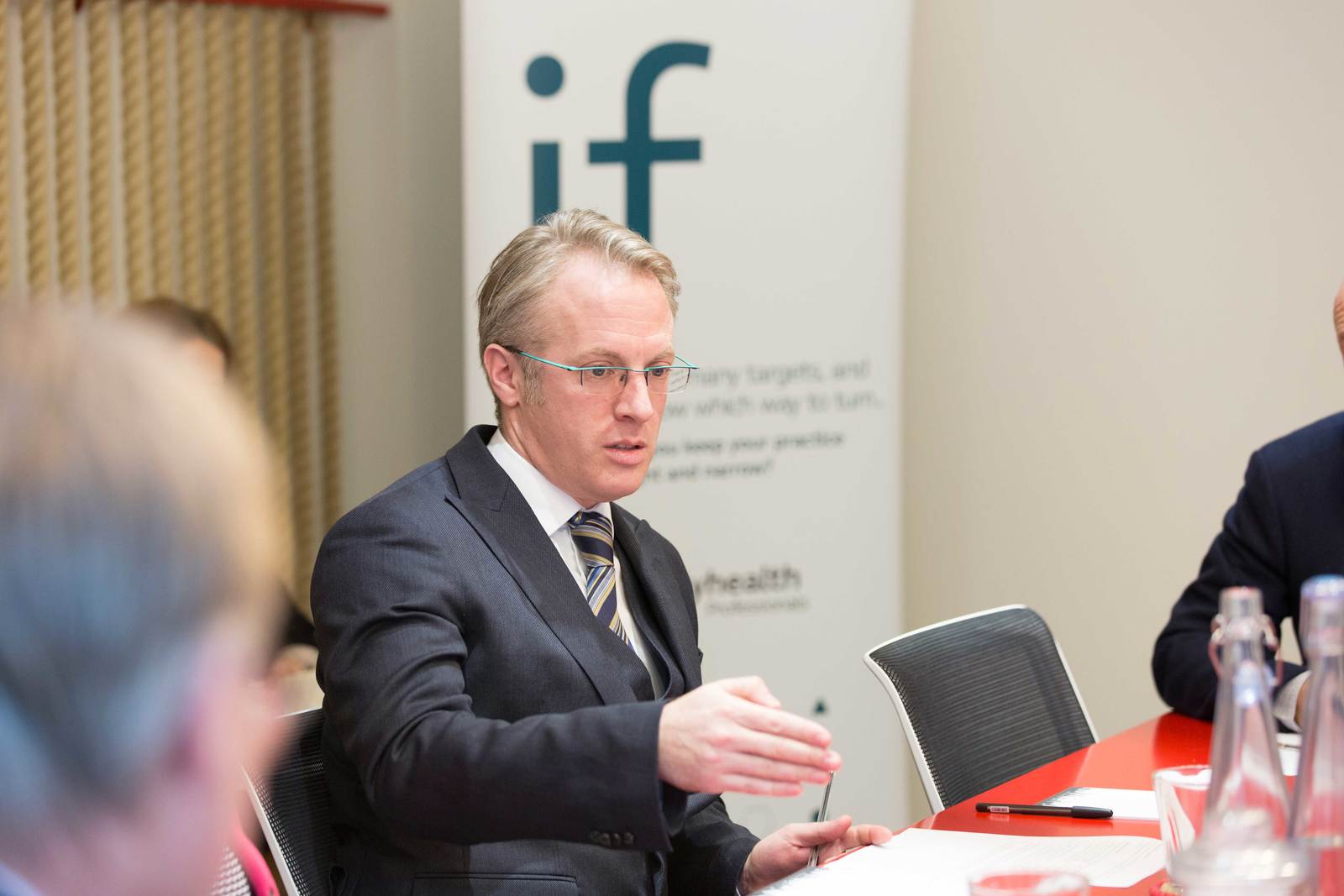 In the first of a two-part article, Sophie Hatton reports back from Simplyhealth Professionals’ second ‘If’ roundtable debate, which brought together several of UK dentistry’s key opinion leaders to discuss the future of NHS dentistry.
In the first of a two-part article, Sophie Hatton reports back from Simplyhealth Professionals’ second ‘If’ roundtable debate, which brought together several of UK dentistry’s key opinion leaders to discuss the future of NHS dentistry.
With a new NHS dental contract originally scheduled to launch this year, but with no sign of resolution, clarity, or agreement resulting from the ongoing prototype experiment, it’s fair to say that the uncertainty surrounding the future of NHS dentistry is having a detrimental effect on the profession.
Of course, this dissatisfaction stems from a number of sources: cuts to primary care budgets, huge real terms pay cuts for dentists over the past five years, UDA clawback, and lackluster efforts by Government to improve child oral health rates in England, to name a few.
But a major bone of contention among the profession continues to be dental contract reform. We find ourselves in a position – more than a year on from Simplyhealth Professionals’ first ‘If’ roundtable debate in 2016 – with no resolution to the prototype arrangement, no agreement on contract reform between stakeholders, and no evidence of a system that can work for all parties.
That’s why earlier this year, Simplyhealth Professionals gathered together a host of key opinion leaders in UK dentistry for its second ’If’ (In Front) roundtable debate. Influential dental professionals and academics from across the country met in central London to discuss some of the key issues surrounding NHS dental contract reform, including morale within the profession, and the future of NHS dentistry in England.
The event, hosted by Simplyhealth Professionals, in association with Dentistry magazine, was chaired by Martin Fallowfield, head of professional relations at Simplyhealth Professionals.
NHS budget cuts
Martin began proceedings by posing a question asked by many dental professional working within the NHS: can the NHS budget for primary dental care still support a high quality comprehensive service available to all?
The question was met by an air of derision from the panel, who seemed to agree with the sentiment voiced by the Dental Defence Union’s John Makin, who asked: ‘Has the contract ever supported a high quality comprehensive survice?’
Following suggestions that NHS dentistry has failed to keep pace with the associated demands of the ageing population, John continued: ‘The hidden question is should the NHS support a high quality comprehensive service for all, and could it? The answer is, of course it could, if the Goverment was inclined to provide it’.
The British Dental Association’s Henrik Overgaard-Nielsen tackled the question from a different angle by addressing the Government’s promised universal availability of NHS dental care, but the underlying sentiments were similar – laying the responsibility at the Government’s door for failing to provide dentists with the tools to achieve this ambitious and arguably unacheivable target.
‘The answer to this question has to be no. The budget can’t support a full comprehensive service for everyone that requires it. And it’s not just a monetary issue. The current NHS contract doesn’t allow us the time to treat patients properly – there’s no time to provide oral health education to each patient.’
The panel agreed that the current NHS contract is not only lacking in funds, it does not provide the time necessary to provide each patient wth a high quality, comprehensive service.
‘One thing that is fixed is the budget, which doesn’t allow for quality of care – that’s the starting point’, said Stroud-based dentist, Leo O’Hara, echoing the point.
‘There’s a real problem with the fixed budget’, agreed the Care Quality Comission’s John Milne. ‘Money ring-fenced for dentistry doesn’t get spent there. Even if it was, the budget isn’t enough to deliver what’s promised. We have a limited budget and only 50% of the population are currently being treated [under the NHS].’

While every healthcare system in the country rations its services and resources to some degree, the Faculty of general Dental Practice’s Ian Mills said that ‘the Government refuses to acknowledge that there is rationing in NHS dentistry’. A mistrust of Government intentions in regard to NHS dental funding was apparent – a sentiment that Dentistry believes is felt widely among the profession.
Martin Fallowfield closed the first issue under debate with a challenge ‘for the dental politicians in the room: until former Prime Minister Tony Blair pledged “NHS dentistry for all”, I’d say around 50% of the population were happy to seek private dental treatment. Now we have an expectation of 100% NHS dental care, and because of this we’re having this discussion. Ought we be modifying the public’s expectations politically?’
The panel looked toward Henrik Overgaard-Nielsen of the BDA – the association that speaks on behalf of the profession – to answer Martin, who dismissed the challenge as a political decision for the Government to make. ‘The BDA’s job is not to tell the Government what percentage of the population should be treated privately or on the NHS. We’re here to point out the issues and the problems with current and proposed systems’.
The panel agreed that mixing private and NHS treatments could be an effective solution to relieving some of the burden of universal NHS care. With BDA statistics showing at least half of all practices in the UK offering a mix of private and NHS services, this certainly seems to be a solution adopted with success by a majority of practices.
Making budgets work
Next the panel moved on to a new discussion closely related to the first. As clearly established in the first discussion, the current NHS system is not able to meet its objective of offering high quality comprehensive services for 100% of the population.
So, Martin asked, how could NHS primary dental care services be reconfigured to meet the needs of patients and professionals? Acknowledging the current prototype arrangements taking place, Martin turned to Ben Atkins, who runs a prototype practice in the north of England.
‘The budget can meet the needs of all involved more effectively by focusing funds on high-risk patients’, Ben answered concisely.
There was agreement to this around the table. Ian Mills added: ‘We currently have a contract that is designed to ignore high-needs patients. But I’m not sure society or the Government are willing to change. It’s a competitive market and dentistry is quite far down the list compared to mental health, cardiovascular disease and so on’.
The discussion threw up questions surrounding how much onus is on the profession to lead the way in terms of reconfiguration of dental services.
John Milne suggested that change is in the profession’s power, asking: ‘The time for change is now, but is the profession willing to evolve?’
Dental Protection’s Len D’Cruz also suggested that changes within the profession are needed to cope with the ageing population, and their demands for more complex care. He said: ‘A reconfiguration of the workforce for advanced dental care is needed; the workforce is absolutely key [in meeting the demands of patients and the profession]. But this brings up further issues surrounding remuneration – I think that change in working needs to be based on a capitation model’.
Len acknowledged that getting the system right is an extremely complex task with no easy solution. ‘We attempted contract reform in 2011, and in 2018 we still haven’t done it, because it’s so complex. There are three stakeholders involved: patients, the profession, and the Government, and we can’t please everyone. But the drive should come from us.

The discussion touched on the contract reform currently in process, and the feeling was that the current prototype system was not the answer.
‘There’s a solution to this problem, but what we’re hearing about the prototypes is that they’ve been a nightmare’, said Henrik Overgaard-Nielsen. The problem lies in making the prototype arrangement financially viable. There’s no silver bullet, but we can get something better than what we’ve got now’.
Ian Mills bemoaned the perception by patients that dental services are rationed by the profession, rather than the Government, leading Simplyhealth Professionals’ Catherine Rutland to demonstrate the ambiguity of the current treatment band system. She said’ ‘Even in Denplan contracts we receive queries about what treatments are and are not included. So any contract system will have ambiguities. It’s up to us to make the right clinical decisions.’
The issue of the ‘heavy metal generation’ soon surfaced, with Martin Fallowfield suggesting that it should be considered that older patients with severe dental needs could pay more for their complex treatments.
‘Younger trauma patients don’t want dentures and bridges, they want implants’, Leo O’Hara answered, suggesting that younger patients come with their own set of complex needs. ‘There are limitations on what the NHS will provide but there needs to be a way to fund these types of treatments. And that’s a political decision.’
A controversial suggestion – but a sentiment that was shared by many among the profession – was voiced by Ben Atkins, who suggested that patients should shoulder more responsibility for their own oral health: ‘We should say to patients, “If you don’t take responsibility for improving your oral health, you can’t have advanced treatments.”’

Turning back to the prototype arrangement, Ben conceded that the prototype system was working fairly well in his practice, ‘but it isn’t working across the board. There isn’t the support to implement it – the support hasn’t been there and that’s a major reason why they’re failing’, he said.
Around the time this debate took place, the Department of Health and Social Care opened calls for interest in the fourth wave of NHS contract reform prototypes in England, prompting the BDA to express ‘frustration over the pace of change, and the failure to offer changes in the prototype model for the latest wave’. In particular, the BDA has criticised the government for penalising prototype practices that do not meet UDA targets, in the form of clawback.
Martin wrapped up the second discussion of the debate, and moved on to address the future of child oral health, the growing litigious environment in UK dentistry, and what the profession will look like in five years’ time. Join us for part two to continue the debate.
Part two of this article will be published next week. For more information on Simplyhealth Professionals, visit www.simplyhealthprofessionals.co.uk.


